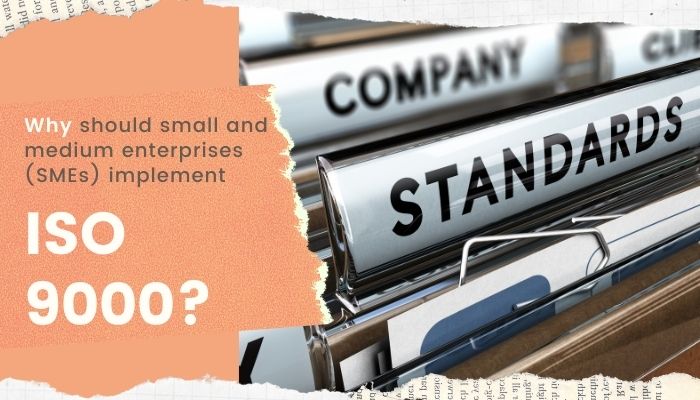ISO 9000 family of standards
ISO 9000 family of standards is a set of Quality Management Standards developed by the International Organization for Standardization (ISO) that specifies requirements relating to quality management systems determination, planning, implementation, operation, and improvement of an organization.
It also provides guidelines for quality system elements, roles, responsibilities, processes, procedures, records, and audits.
The overall aim of the ISO 9000 family of standards is to provide an internationally accepted methodology that enhances the effectiveness of organizations through their ability to consistently deliver a product or service that meets customer and applicable statutory and regulatory requirements.
These standards are intended to serve as a management tool that allows organizations to benchmark their own procedures against best practices.
ISO 9000 standards implementation
When implementing these standards, it is essential that each organization creates a system to maintain these standards that includes an internal auditor, who will verify the efficiency of the system.
It is also imperative to have a document that details these standards, which is called a quality manual. In this manual, businesses should describe how to identify errors, how to prevent them from recurring, and how to keep records of products produced.
The ISO 9000 series of standards is set in a hierarchical order, allowing companies to achieve certification at an increasing level of rigor, as they adopt the ISO 9000 system.
When the ISO 9000 system is implemented, it can be applied to almost any type of organization within the entire spectrum of economic activity.
ISO 9000 currently comprises 3 quality standards: ISO 9000, ISO 9001, and ISO 9004. ISO 9001 sets the requirements, while ISO 9000 and ISO 9004 provide the quality guidelines.
All three ISO 9000 Standards are process standards and were developed in sequence, so that organizations would be able to develop and manage their business processes effectively. Each standard can also be used independently of the others.
Quality Management Systems
The full titles of these standards are ISO 9000 – Quality Management Systems – Guidelines for selection and use of the international standard series, and ISO 9004 – Business Continuity Management – Guidelines for selection and use of the international standard series. For convenience, these are commonly abbreviated as “ISO 9000” and “ISO 9004”.
Why are the ISO 9000 standards so important and why should small and medium enterprises (SMEs) implement them?
In today’s globalized world, to be successful, companies need to achieve operational excellence by improving their efficiencies and profitability.
By implementing the ISO 9000 family of standards, the most widely adopted standard throughout the globe for quality management systems, businesses will be able to achieve just that.
Interested in learning more about the benefits of these standards?


